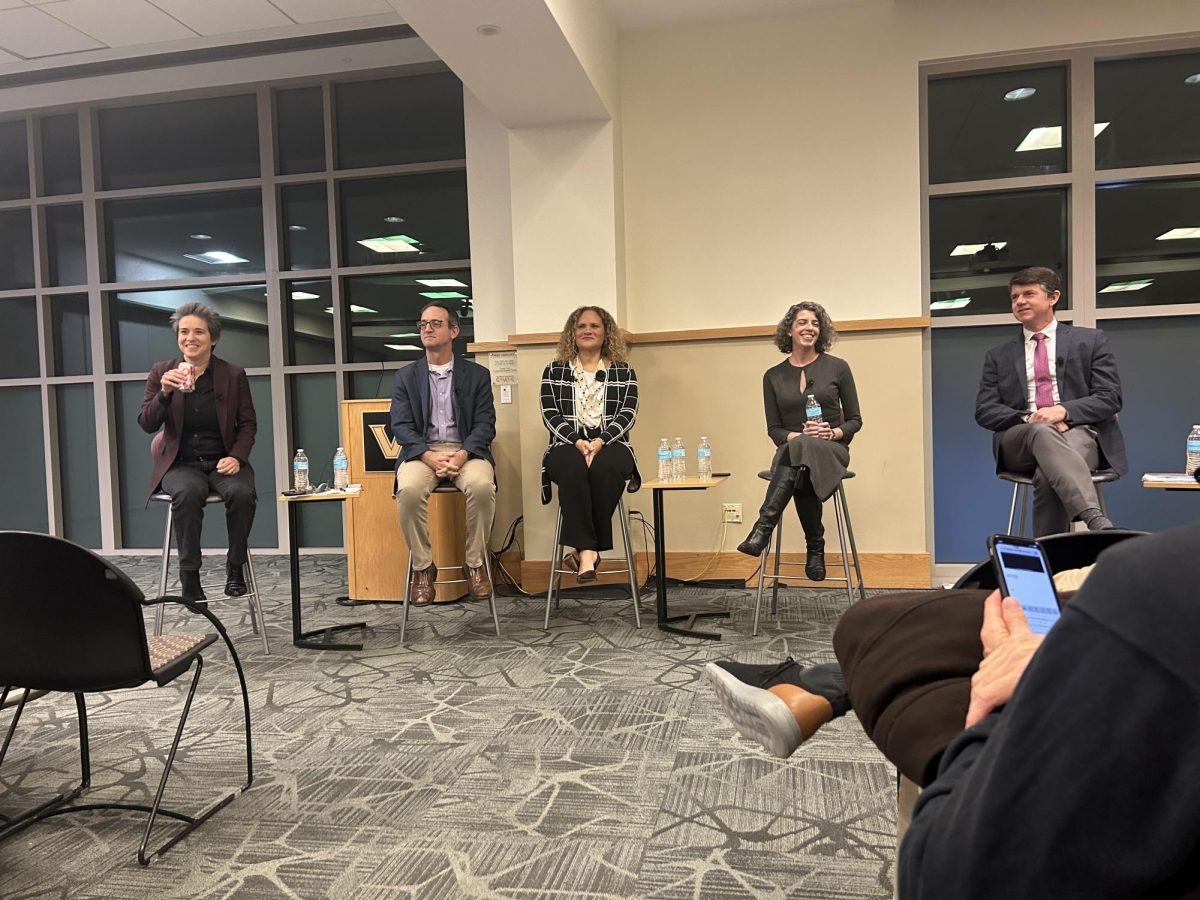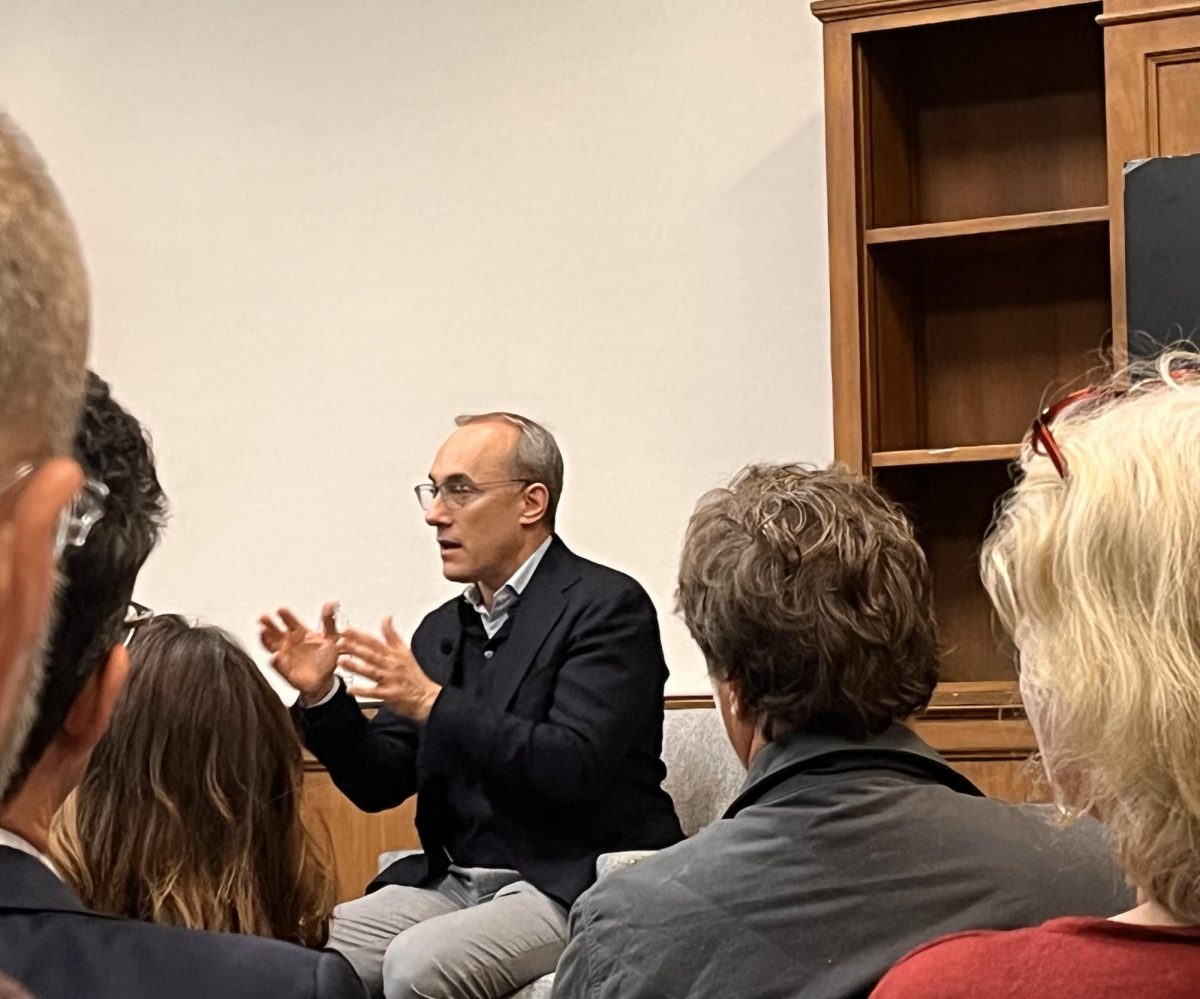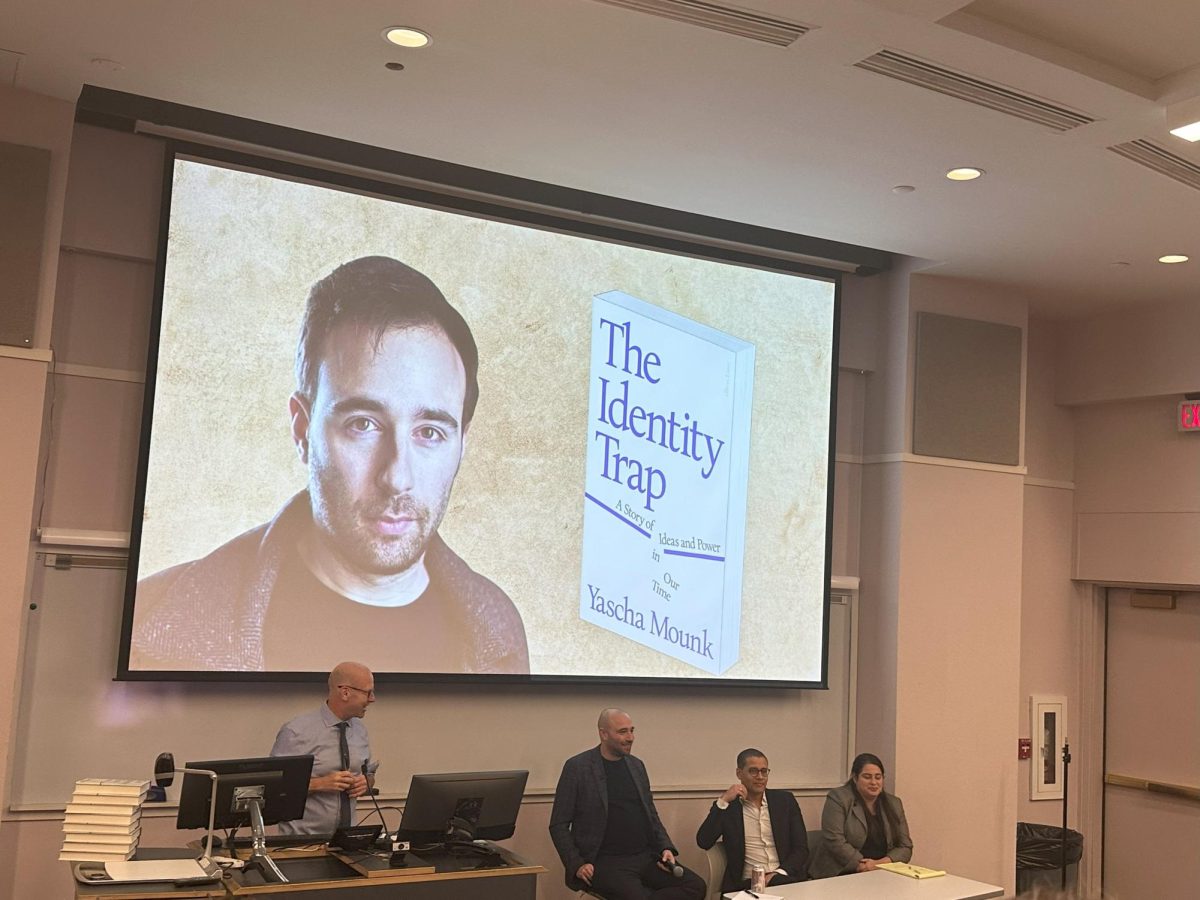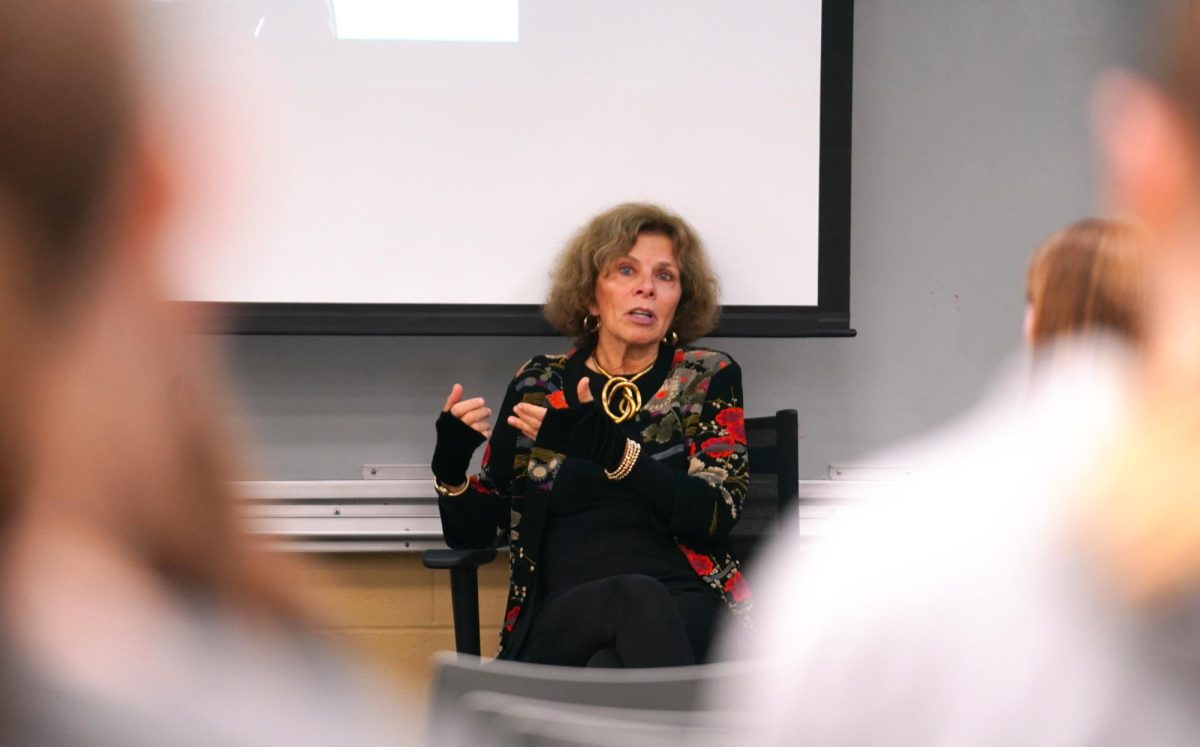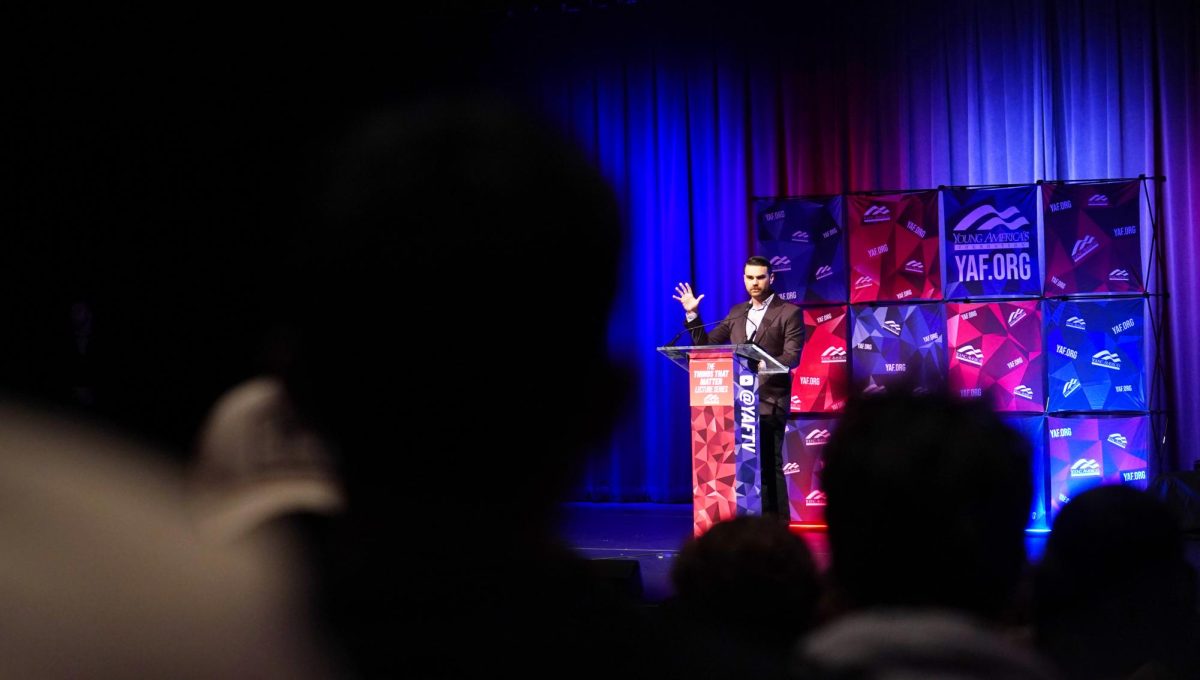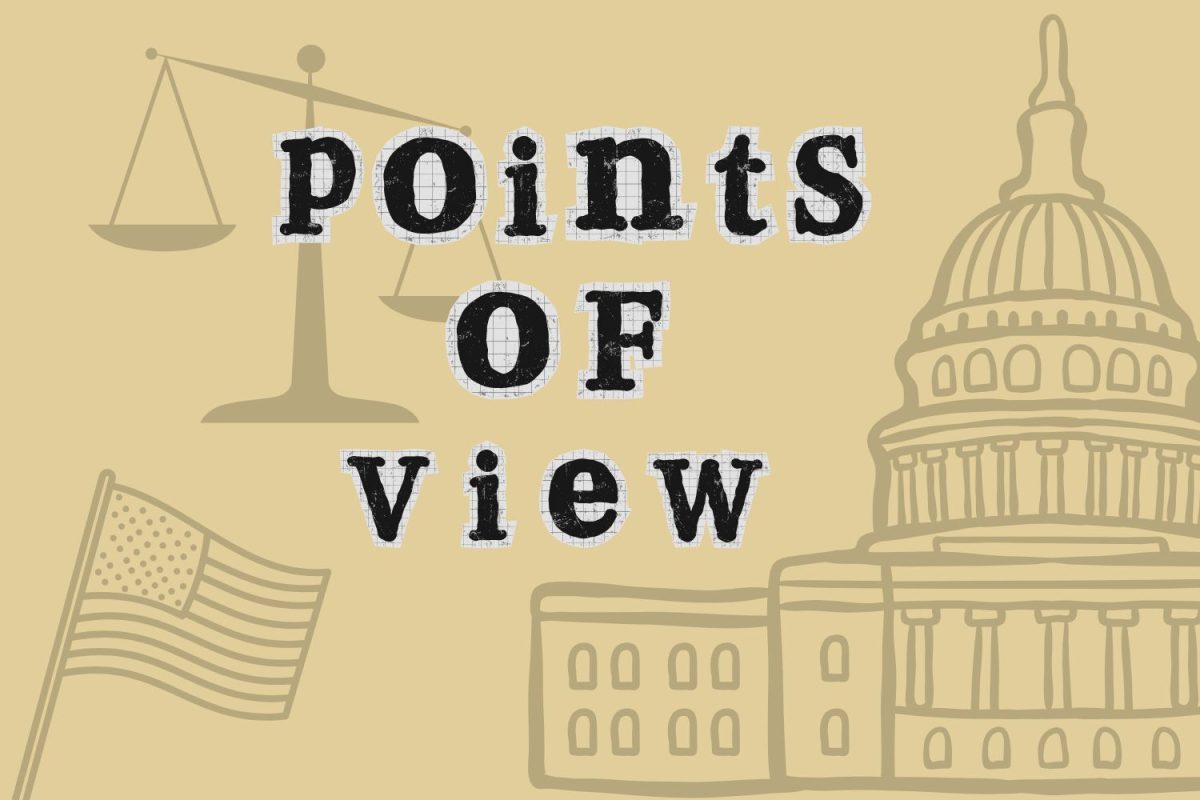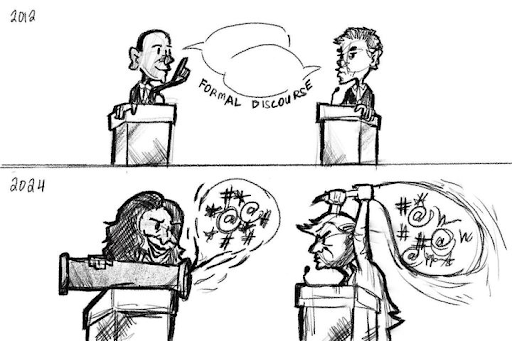Open Dialogue Visiting Fellows Series hosted Jamelle Bouie, opinion columnist at The New York Times for a discussion titled “What’s the Matter with American Democracy?” on Oct. 1. The event centered on the theme of how to disagree well about politics during the 2024 election season and explored issues of political equality in American democracy, a topic Bouie highlighted as both overlooked and increasingly challenged.
Bouie began his career as a staff writer for The Daily Beast before serving as chief political correspondent for Slate. He is now a columnist at The New York Times, where he covers topics ranging from public politics to the intersection of history and American politics. His work has earned him numerous accolades including the Hillman Prize for Opinion and Analysis Journalism.
Political equality in democracy
Bouie opened the discussion by addressing the question “What’s the matter with American democracy?” to which he responded, “Everything.”
Bouie argued that political equality — the idea that everyone counts equally in terms of influence, electoral system and rights as citizens — is not being supported by the current democratic institutions. He attributed this failure to the structure of the government and the acute character of today’s politicians. Bouie then discussed the structural challenges facing American democracy, beginning with the Constitution.
“The Constitution is undermining our democratic institutions, creating a mismatch between its design and democratic expectations,” Bouie said.
He pointed to the Senate, where states are given equal representation regardless of population, as an example of this imbalance.
“This means that some Americans count more than others,” Bouie said. “The filibuster makes it trivially easy for a minority of senators, representing an even smaller minority of voters, to kill legislation favored by the huge majority of the public.”
Bouie also claimed that the electoral college threatens political equality.
“The winner-takes-all distribution means that the only states that really matter are the ones that are very competitive,” Bouie said.
According to Bouie, states like Tennessee, California and Virginia are marginalized because the outcome of their votes is often assumed, diminishing their influence in elections. Bouie also discussed the effects of federalism on political equality.
“Strong federalism gives local elites in each state the power and autonomy to severely restrict political participation and political equality,” Bouie said. “The Supreme Court, through judicial review and its isolation from political branches, becomes a major obstacle to establishing political equality, making it hard to create a system that ensures equal participation and rewards majority rule.”
He also noted that this counter-majoritarian aspect of the system complicates efforts to honor the rights of all citizens. Bouie further argued that political parties, particularly the Republican Party, fail to police their supporters and have adapted to the lack of political equality.
“Republicans can win Electoral College majorities without popular majorities, stacking courts with jurists who reinforce counter-majoritarianism,” Bouie said. “This feedback loop discourages broad coalition-building, promotes narrow victories, and fosters contempt for the idea that people should choose their leaders, eroding democratic legitimacy.”
Changing political behavior
Bouie said that if it were just a structural issue, American democracy would have a better chance. The deeper problem according to him is the shift in the moral character of politicians. Bouie pointed to specific politicians as emblematic of the erosion of political norms and values in American democracy, naming Mitch McConnell, Marjorie Taylor Greene and Donald Trump.
“These figures have abandoned the sportsmanship that once governed political life, replacing it with a ‘win-at-all-costs’ mentality,” Bouie said. “They represent the rejection of traditional political virtues and are being driven by power and personal gain.”
He noted that politicians have abandoned virtue for a politics of cruelty, creating a nation that is ill-prepared for future generations.
“When politicians refuse to play this game, they embrace a politics of cruelty and malice, [and] voters act accordingly,” Bouie said. “We have a political system that is crumbling because we don’t have political leaders who are willing to perform in a way to make sure it stays at least a little bit stable.”
Bouie concluded by asserting that the core problem with American democracy is the loss of virtue.
“There are no explicit rules that say you can’t run this kind of demagogic campaign but generally speaking, you don’t do it,” Bouie said. “We recognize that this is a bridge too far, that this really begins to threaten lives and undermines the entire political system. The issue with American Democracy is that there is no virtue.”
In an interview with The Hustler, Bouie spoke about how to foster healthier political conversations while upholding political equity. When asked for advice on how to disagree well and foster healthier political conversations, he emphasized the importance of humility in political discourse.
“The best approach is to have a sense of humility about the limits of your own knowledge and recognize that however strong you feel, the other person feels just as strongly and may have some awareness that you might not have,” Bouie said. “Be humble about the basis of your own beliefs and your ability to pass judgment.”
Student and faculty reactions
Following the event, senior Keyonte Doughty, student ambassador for Dialogue Vanderbilt, shared his thoughts on Bouie’s talk and the inclusion of diverse speakers in the series.
“I think the series is great because it brings in different perspectives and a wide range of ideas,” Doughty said. “One moment that stood out was when an audience member asked a question that challenged the speaker, and he responded thoughtfully. That’s exactly what this event is about — fostering open dialogue and civil discourse.”
Sarah Igo, head coordinator for Dialogue Vanderbilt, also reflected on Bouie’s impact.
“This talk opened up new lines of inquiry for both students and faculty, moving beyond typical discussions,” Igo said. “It highlighted the distinction between partisanship and stewardship, encouraging us to think not just about the present but also the future. I judge a talk by the new ideas it sparks, and this one did a great job.”





